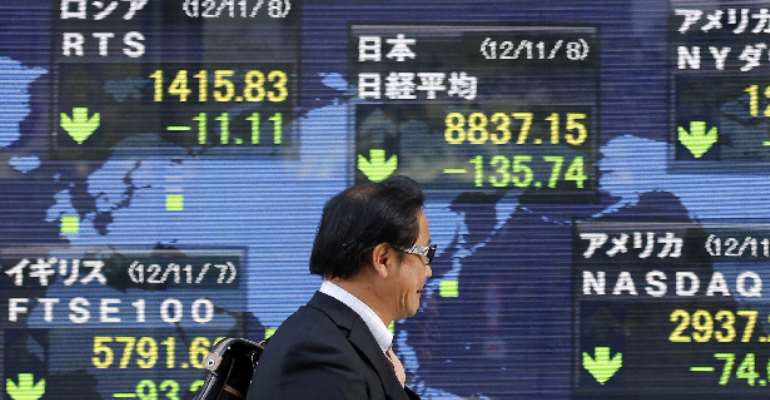Chinese Stocks, Dollar And Debt The Stars Of 2014

Chinese and U.S. stocks headed the list of 2014 top performers while markets elsewhere ended the year on Wednesday on a cautionary note as worries about Greece's future served as an excuse to take profits.
The U.S. dollar lost a little of the recent gains that have made it the year's star major currency, but European bonds yields scored all-time lows following a shockingly sharp fall in Spanish inflation on Tuesday.
European stocks had a steady start as they wrapped up a year that has seen a 3.5 percent rise for the region as a whole but also sharp divergence, with near 30 percent losses for debt-strained Greece and Portugal.
The stand-out global equity performer has been China, where the CSI300 index looked set to end 2014 with gains of nearly 50 percent.
Almost all of China's rise came in the last couple of months, as hopes for more aggressive policy stimulus to counter its economic slowdown boosted banks and brokerages.
Featuring on Wednesday were hefty gains for China's biggest train makers, China CNR and CSR Corp, after they confirmed a $26 billion merger.
“China stocks have done really well this year and the dollar move has also been very interesting,” said Alvin Tan, an FX strategist at Societe Generale in London. “It barely moved against the other major currencies in the first of the year and all the big gains came in the second half.”
Trade elsewhere was thinned by holidays in Japan, Thailand, South Korea and the Philippines, while many markets in Europe were either shut or finishing early.
Europe's government bond markets all closed on Tuesday after another stellar year that has seen Italian and Spanish borrowing costs hit record lows and unglamorous but ultra-safe German debt enjoy its strongest year in six.
Among the scraps of news in Europe, two polls in Greece published late on Tuesday showed the anti-bailout party Syriza's lead over the ruling conservatives had narrowed.
BUY DOLLARS, WEAR DIAMONDS
The dollar was on track to end 2014 with a gain of 12 percent against a basket of major currencies, its best performance since 2005, and anticipated U.S. interest rate hikes may strengthen its appeal in the new year.
It eased against the safe haven yen to stand at 119.64 from Tuesday's peak of 120.69, as futures prices pointed to small gains for Wall Street when trading resumes following its 13 percent jump to an all-time high this year. [.N]
The euro was undermined by sliding European yields amid intense speculation the European Central Bank will have to start buying government bonds to avert deflation.
The single currency was stuck at $1.2154 having touched a 29-month trough of $1.2123.
“If my assessment is that there is a need for further accommodation, and if I were willing to cut rates if that had been possible, then I should not be paralyzed by the fact that the only option is to buy sovereign bonds,” top ECB policymaker Peter Praet told a German paper.
Data out on Tuesday showed Spanish consumer prices fell in December at their fastest rate since July 2009, largely as a result of cheaper oil.
Crude has slumped 50 percent in the last six months and dropped below $57 a barrel on Wednesday as weak Chinese manufacturing data and demand concerns outweighed supply disruptions in Libya. [O/R]
China's factory sector shrank for the first time in seven months in December, the HSBC/Markit Purchasing Managers' Index (PMI) showed, highlighting the urgency behind a series of surprise easing moves by Beijing in the past two months.
Copper, highly sensitive to global growth and of which China is the biggest consumer, looked set to post its biggest annual decline in three years at 14 percent, while traditional safe-haven gold hovered at $1,200 an ounce to end the year roughly where it started.[GOL/]
Emerging market stocks and bonds were on track for their second straight year in the red at the end of a torrid 2014, especially for Russia.
The ruble was down 4 percent on the day as a 43 percent plunge since January left it heading for its worst year since Russia defaulted in 1998.
REUTERS
